Shalhevet remembers growing up with Kobe
January 27, 2020
Kobe Bryant, the five-time NBA champion who spent all 20 years of his basketball career with the Los Angeles Lakers, died in a helicopter crash Sunday. He was 41 years old.
According to multiple news reports, Kobe’s personal helicopter went down and crashed just before 10 a.m local time. There were a total of nine people on board, including Bryant’s daughter, Gianna, a basketball prodigy who was just 13 years old.
Bryant’s sudden death devastated the NBA community worldwide, and many of his grieving teammates, fans and former opponents posted their condolences to his family on social media. The “Black Mamba’s” passing also struck closer to home, since many Shalhevet students grew up watching the generational icon play, and were inspired by his unwavering dedication and love of the game.
2016: Bryant scored 60 points against the Utah Jazz in his final game
Mamba out
Today started as a typical Sunday morning and my family and I were enjoying brunch at a local cafe. Just before we got up to leave, I overheard the party next to us say that Kobe Bryant had died in a helicopter crash. My mind refused to accept this as the unconfirmed reports on Twitter multiplied. It was only upon reading a report from ESPN’s Adrian Wojnorawski confirming the awful news that my heart sank and I went numb. At that moment I knew that my idol was no longer here to guide me.
I spent the day alternating between tears and shock as I realized why Kobe is so special to me.
Those who know me know that basketball is an integral part of my life, and much of that is due to Kobe’s influence.
Growing up in Los Angeles in the 2010’s during Kobe’s prime was a privilege. Like thousands of others who play basketball almost every day, I strive to emulate Kobe while on the court and bleed purple and gold when watching my beloved Lakers play.
Since I was five years old, I would watch Kobe hit the same 15-foot jump shot and fade-away that only he could make. Kobe was the number one reason why my childhood was so great. Everyday I would race to complete my homework by 7:30 in order to watch Kobe play. Every time Kobe got the ball I would be at the edge of my seat and marvel at the endless tricks he used to outsmart his opponents. After each basket, I would pump my fist or high-five the person next to me. This was a nightly routine for about 12 years of my life, until Kobe’s retirement in 2016.
I have been privileged with a young and healthy family so I have never really experienced something truly tragic in my family but today I felt as if I lost a family member. Today was a day where I held nothing in and displayed my emotions. However, this wasn’t the first time I cried over Kobe. On April 13, 2016, it was Kobe’s last game and he was scoring left and right. By the end of the game he had dropped 60 points and given the Lakers the final win of the season. He ended his career with the words “Mamba Out,” which brought tears to my eyes. Unfortunately, this time, Mamba is really out and I’m struggling to accept this loss.
I always wanted to meet Kobe just to say thank you for giving me the best childhood and teaching me the game of basketball and the importance of a strong work ethic. Like countless others, I can’t shoot a paper into a trash can without yelling “Kobe!” Going forward, I am going to think about him twice as hard as I remember and honor the greatest basketball player of all time.
Intellect and nuance
I didn’t grow up in LA and truth of the matter is that during peak Kobe years I was in yeshiva mode and didn’t watch or follow the NBA avidly. I’m a sports fan and you’re always aware of the great ones, but I can’t say that I ever fully appreciated the night in, night out Kobe Bryant box score, certainly in the way I appreciated Jordan’s when I was a kid.
What amazed me, however, about Kobe were his interviews. Kobe spoke with such eloquence and sophistication no matter what question the media threw at him. He always seemed so smart and cerebral, and aside from his talent it was clear that his intellect was part of his greatness.
I have one memory of Kobe being interviewed by the international media after a Finals win, maybe even after the championship game, and Kobe responded to the question in Italian. I was so taken aback by it. A — the fact that he was multi-lingual, and B — that he had the presence of mind and the courtesy to retrieve that language skill in that moment. It felt classy, intelligent and thoughtful. I know that Kobe’s legacy, like most people’s, is complicated, but I found myself reminiscing today about that nuance of Kobe, something that seems unrivaled in The League.
2017: Bryant and his wife Vanessa, and daughters Natalia, Gianna and Bianka smiled as his two numbers — 8 and 24 — were retired at Staples Center
A comic book supervillain who changed the game
Comic books feature many types of villains. There are the tragic ones, the megalomaniacs, the evil gods. But one group that has always stuck with me are those rogues who simply revel in the spotlight. For most of my childhood, the man who epitomized that was Kobe Bryant.
We know Kobe’s superpowers: his extraordinary work ethic, his killer instinct and his smooth jump shot. But a true villain needs a starring moment. And for me, that was Jan. 22, 2006.
Born in Toronto, I was a young Raptors fan who went to see his underwhelming team play at the Staples Center. We were winning for most of the game, until the third quarter, when Kobe went nuclear. Shot after shot, Kobe proved he was unstoppable.
I had no idea who this man was who was terrorizing my team and turning the roaring Staples Center crowd speechless. But I heard the name “Kobe.”
By the end of the match, the Lakers had won by 18, but more importantly, Kobe left his biggest mark on history, scoring 81 points — the second-most in a game in NBA history. Every year on the anniversary of that game, I watch Kobe’s highlights from that matchup, available here.
Ask anyone who was not a Lakers fan during his playing career and they will tell you the same thing, that they HATE Kobe Bryant. And this is not the type of hate one has for a game and then goes back to their business. Kobe seared his name and presence into his opponents’ minds. When Kobe pointed to the sky after his victory, it seemed to be his acknowledgement that he had just changed the game of basketball.
Like any good supervillain, Kobe chose his nickname: the Black Mamba. He said that he chose it since the mamba snake could “strike with 99% accuracy at maximum speed, in rapid succession.” This
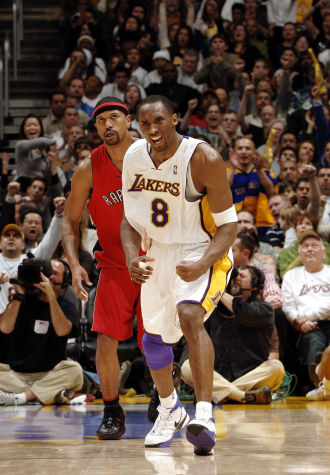
2006: Bryant scored 81 points — the second-highest ever — in a Laker victory over the Toronto Raptors 122-104 on Jan. 22.
nickname stuck, just like the Joker or Doctor Doom, because it really described what he was. That night against the Raptors, and many nights after, proved that the name fit. Kobe was a cold-blooded killer, and he knew it.
Years after his retirement, I’ve grown to understand that Kobe was more complex than his persona. I learned that a year prior to that 81-point game, a 19-year old woman accused Kobe of raping her, something which has always made it difficult for me to idolize him, and something no one can ignore when discussing his legacy.
Nevertheless, I also watched Kobe grow into a father and family man. I saw videos on social media of Kobe and his daughter Gigi sitting courtside at games as Kobe imparted lessons to her. I heard interviews where he asserted that Gigi was going to carry on the Bryant legacy in the WNBA. It is cruelly poetic that both Kobe and Gigi were taken together.
It breaks my heart that I will never get to see the man who I once knew as a supervillain and then as a man who made serious mistakes completing his transformation into one known as the caring and mentoring father we saw him becoming.
Keys to the game of life
The Black Mamba is a venomous, lethal, and fearless creature. Dusk or dawn the Mamba keeps his eyes on the prize, ready to attack. Cool, calm, and collected the Mamba tenaciously slithers his way into the lives of his prey. Three, the Mamba surveys the playing field. Two, the Mamba drives in. One, the Mamba takes his shot. Having finally captured its prey, the Mamba keeps his head up high, awaiting the next challenge with confidence, poise, and an insatiable drive, or as I like to call it, the Mamba Mentality.
Kobe Bean Bryant was an incarnation of the Black Mamba’s fearless values and traits. Night in and out, he was fueled by the Black Mamba’s competitive force. Win or lose, airball or swish, Kobe’s appetite to feast on all his prey grew stronger every day.
I had the absolute honor of witnessing greatness in watching number eight on the purple-and-gold play basketball. Year by year, I gained more respect and admiration for Kobe’s contributions, both on and off the court.
In times of discomfort and pain, Kobe was my escape from reality. Watching his highlights and how he kept his composure during pressuring, stressful, and tough moments taught me a whole lot about how to face adversity. Believe me, I’m the biggest sports guy out there, and Kobe somehow still managed to teach me more about the keys to the game of life than to the game of basketball.
Thus, it is only right for both I and the rest of his fans to honor his legacy. Sure, committing eight and 24-second violations at the beginning of NBA games, or even going as far as naming a street after him, may honor Kobe and what he did for the game of basketball.
However, I know Kobe far too well to understand that this is not what he would consider the greatest honor or reward. To his fans that are constantly seeking a way to return the favor, I can say without a doubt that now more than ever Kobe would want us to incorporate his very own mamba mentality into our lives. Whether that means pulling an all-nighter to ace a big test or performing some sort of outreach for a community in need. In Kobe’s eyes, this is what life’s all about, and so invite the challenges, focus on the journey, and embrace the grind. As it is only then when you can finally channel in your inner mamba.
2017: Bryant won an Oscar award for Dear Basketball, a short film he wrote and narrated
Grew up with you
I watched you from even before I was able to understand basketball. I didn’t just grow up watching you. I grew up with you. You inspired me. You taught me what success looks like, and what it takes. Most of all, you gave a kid moments of joy and amazement almost every single night at times when they were hard to come by. Thank you and rest easy Mamba…
And we both know, no matter what I do next
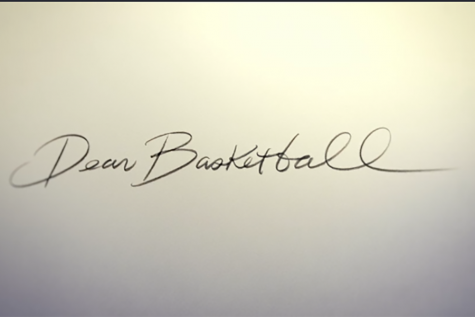
I’ll always be that kid
With the rolled up socks
Garbage can in the corner
:05 seconds on the clock
Ball in my hands.
5 … 4 … 3 … 2 … 1
Love you always Kobe.
He built the house, then built a home
The first basketball game I remember going to was Lakers versus the New Jersey (now Brooklyn) Nets. This has to be over 10-12 years ago. I don’t remember much of the game, but I do remember seeing the larger-than-life Kobe Bryant — the guy I saw on my TV screen nightly during basketball season, the guy who my dad talked about all the time, the guy who with that guy Shaq led the Lakers to three straight championships, and later to two more.
The last time I saw Kobe play was Nov. 3, 2015. We got amazing seats behind the basket to watch Kobe play during his last season. The Lakers lost to the Denver Nuggets 120-109 that game. But it didn’t matter. I got to see this chasuv guy play basketball at what Alicia Keys so aptly described during the Grammy’s as “the house that he built.”
Last night I watched Dear Basketball — Kobe’s Oscar-winning short film addressing his retirement and why he loves the sport so much. It moved me very deeply.
“I fell in love with you,” he says in the poem he narrates over animation, first of a little boy and then a grown man playing basketball. “A love so deep I gave you my all–from my mind and body, to my spirit and soul.
“My heart can take the pounding. My mind can handle the grind. But my body knows it’s time to say goodbye.”
This man devoted his career to Los Angeles. He represents the best of LA: passion, drive and success. He showed us what we can do and who we can be if we put in the necessary effort.
Then there was the relationship that Kobe had with his daughter, Gianna. Kobe told Jimmy Kimmel just four months ago that everyone always came up to him and asked him how he tolerated having four daughters and no sons, i.e. no one to assume his legacy. But Gianna had dreams of going to the WNBA. Gianna was going to be the next link in the chain.
There are videos of them sitting courtside at games talking to each other. He was her basketball coach. Their close relationship is undeniable. Kobe Bryant was a lot of things to a lot of people. He was a hero, a legend, a role model. He was an opponent, a teammate, a coach. He also was a father. A father who loved his daughters.
Kobe Bryant had the mamba mentality. He encouraged perseverance, hard work and valuing the important people in your life. In his last game ever, after scoring 60 points to end a Hall-of-Fame worthy career, he said goodbye to his career by saying “Mamba out.”
In my favorite movie of all time, The Sandlot, Babe Ruth comes to visit Benny “the Jet” Rodriguez in a dream. The Babe tells Benny that “heroes get remembered, but legends never die.” Kobe Bryant’s legacy is eternal; the Mamba’s light will never be out.
Opportunities to rise
When I heard the news, I was in shock. Complete denial. I couldn’t grasp what TMZ posted and kept refreshing my phone to see if it was true. When the LA Times confirmed the tragic news, my stomach ached and tears immediately filled my eyes.
I wasn’t ready to let go of my dream of meeting one of my biggest role models.
“No way was Kobe Bryant dead,” I thought to myself. I couldn’t even say it out loud or come to terms with the news. I turned to one of the most influential books I have ever read: Mamba Mentality. I couldn’t get myself to open it that day and instead just stared at the front cover for hours thinking about the impact he has left on the world. It wasn’t until today that I reread every intelligent and well-thought-out thing he had to say.
The book changed how I see the game of basketball and life.
I tremendously admire his grit, love for the game, competitiveness to win, work ethic and curiosity. He never gave up, always leaving everything he had on the court. He was someone I looked up to since I was young and is one of the reasons I am so passionate about basketball.
Kobe portrayed many exceptional qualities throughout his lifetime, but one that really stuck with me was his perseverance. He navigated around every obstacle he encountered through hard work and determination; he was superhuman.
In Game Two of the 2000 NBA Finals, he busted his ankle, and said at the end of his career that it was the worst ankle sprain he ever had. He still managed to bring home a championship that year. All summer after the injury occurred, he started tap-dancing to build back up his ankle strength, while also improving his footwork. One of my favorite things he says is, “Everything negative — pressure challenges — is all an opportunity for me to rise.” I look at challenges in a positive light, thanks to Kobe, as they bring improvement.
When Gary Vitti, trainer, told Kobe he had fractured his finger on Dec. 11, 2009, Kobe’s immediate response was, “Alright, cool, now get me back out there.” Kobe strived to do everything in his power to make it known that he was unbeatable and that this injury wouldn’t stop him from achieving greatness.
Because he used to always release off his first two fingers, he was forced to change his shooting form. He had to adapt to releasing off the middle finger, and not letting his index finger interfere. He went on to win his third championship that season, in 2009, despite the roadblock he’d had to overcome.
Another instance that demonstrates the type of player he was, was April 12, 2013, when he had three minutes to go in a game against the Warriors and tore his achilles. In Mamba Mentality he wrote: “It became evident fast, though, that I should take the free throws and get the hell out of there.” Kobe knew he had to finish the game, because if he left, he sure wasn’t coming back.
These moments define the type of player and person Kobe was. He gave maximum effort constantly and always aimed to be better than he was the day before.
“You always want to outwork your potential. As hard as you believe you can work, you can work harder than that.”
Kobe left a mark on the world and me that will never be forgotten. From now on, every time I step on the court, I”ll think about Kobe telling me to keep pushing myself harder, and that anything is possible if I’m locked in.
It makes me sad that the next generation won’t be able to be in the presence of the greatest player of all time, although I know his legacy will remain forever.
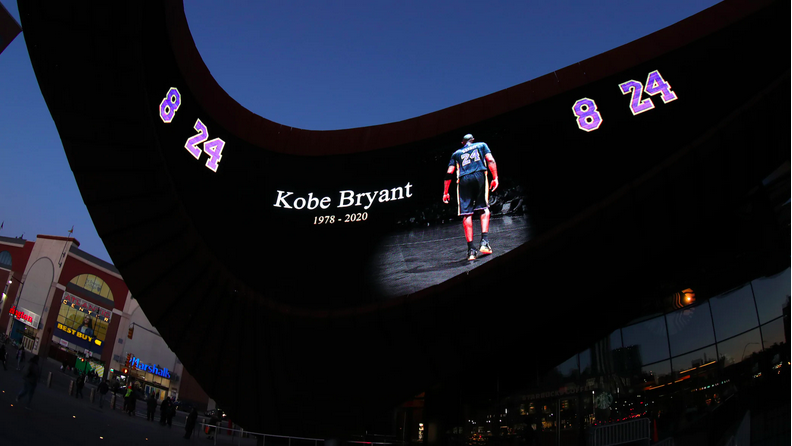
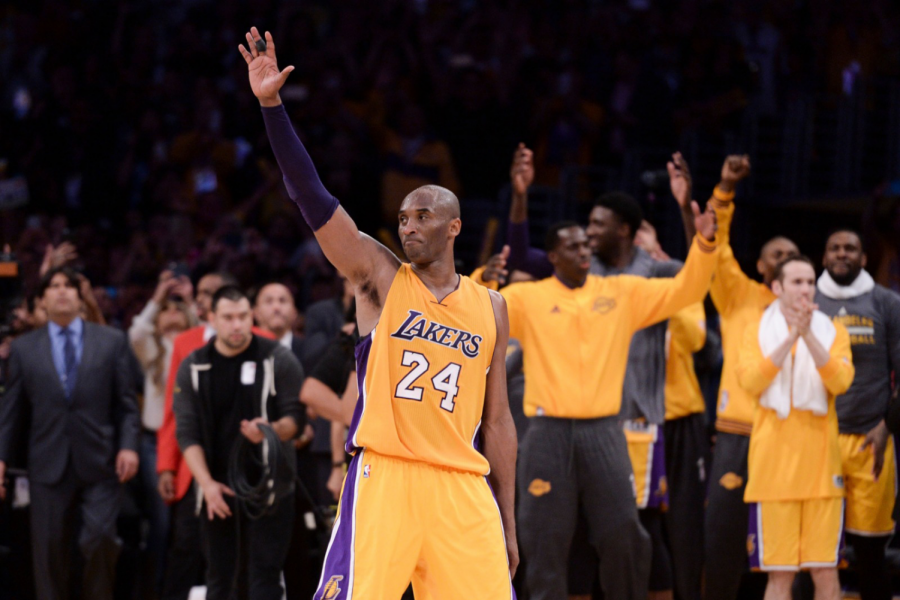
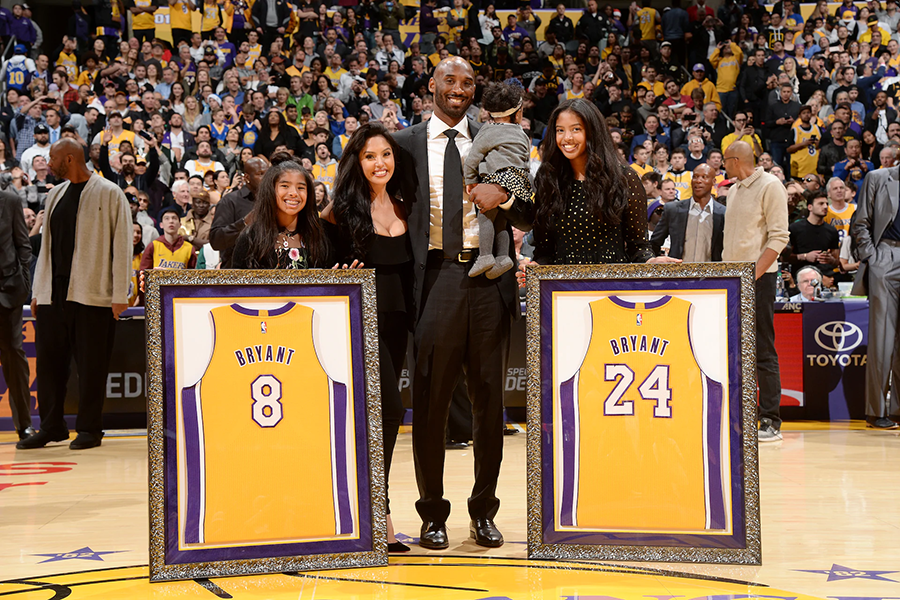
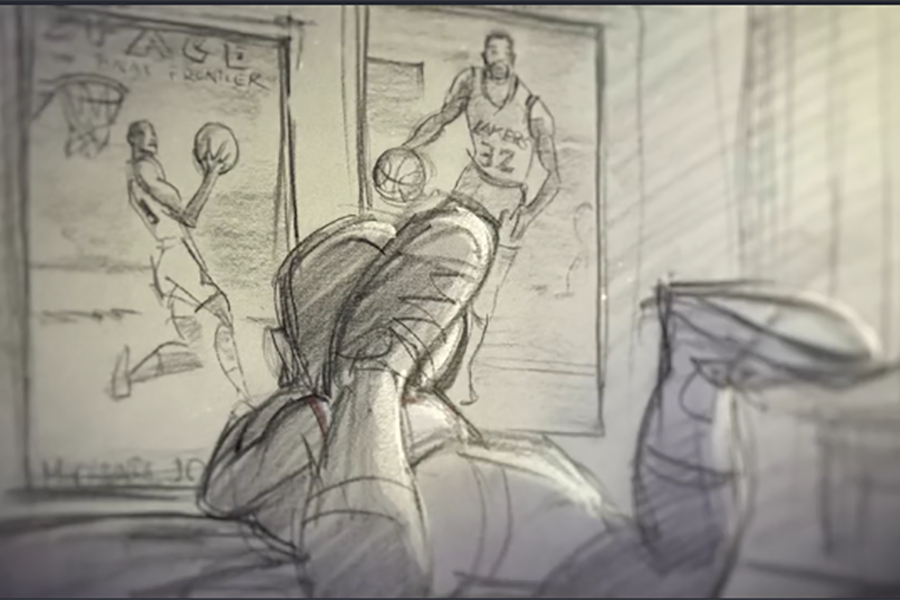
Daniel Sentchuk, Los Angeles • Jan 28, 2020 at 10:08 am
“Someone else to remember”
There is a time and place for everything, and everyone is entitled to his or her own opinion, but sometimes we need to know when to filter things that should not be said. Kobe was not only a legend and role model to many, but he was also a person who recently passed away and does not deserve this kind of treatment, especially now that he cannot defend himself. It is not right to bring up accusations that Kobe was never convicted of. Furthermore, many apologies were made, and forgiveness was given by many, even by his wife. It is not appropriate to bring up such accusations, especially when many are going through such tough times while mourning the loss of their father, husband, friend, or hero.
Asher Dauer, Shalhevet '19, Jerusalem • Jan 28, 2020 at 4:57 am
I’m sick to my stomach reading “Someone Else to Remember.” Regardless of your views on Kobe, sexual assault, or Boiling Point’s freedom of the press, “kavod hamet” should be prioritized over all of them – in a modern orthodox school nonetheless!
Yonah Berenson, Editor-in-Chief, The Panther Post • Jan 27, 2020 at 11:10 pm
Re “Someone else to remember”:
The writer casts aspersions on a man dead fewer than two days based on a case that was dropped and a suit that was settled out of court. Dredging up sordid details about a recently deceased man’s past is almost never acceptable, least of all when he was never shown to have assaulted his accuser and when he was genuinely remorseful for any pain he might have caused her. Truthfully, Kobe and his accuser were both probably telling the truth—he that he believed she had given consent, and she that she never gave it. But 17 years, a hefty settlement, heartfelt apologies, and an untimely death later is not the time to bring up this affair.